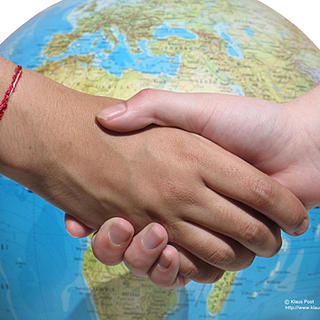Praying for an end to the pandemic and staying safe
- Missio Scotland
- Sep 29, 2021
- 3 min read

Claverian Sister, Sr Stella Niwagira—who spent some time in Bellshill with her fellow sisters and who has hosted two missionary trips from Scotland—gives us an insight into how people in her native Uganda have been affected by the Covid-19 pandemic.
WHEN we first heard about the Covid-19 pandemic, we just thought of it as something that wouldn’t directly affect us here in Uganda. It was thought of more as a strange flu—albeit deadly—that was affecting China. However, we soon became aware that the virus has arrived in Europe and was spreading fast.
The first cases in Africa were announced in our neighbouring countries of Kenya and Tanzania. As soon as that happened, we started panicking. Lots of stories, both accurate and misleading, began to spread at the same pace as the virus itself. However, one that was true was that Europe and America were going into lockdown. Before we knew it, Uganda decided to go into lockdown too, even before the first positive case was diagnosed in the country.
It was then that our struggles began, but there was precious little we could do about it. Originally, our lockdown was supposed to last for two weeks. However, when it became clear that it was going to be for longer, people became anxious. That first lockdown ran from March to May 2020. As everyone in the UK will know, it was a very disheartening time for everyone having to live under lockdown.
No work means no food
Many people in the cities and towns here have to get by on what they earn on a given day. That means that if someone has not been able to go out to work, they will have nothing to eat. You can imagine then, that as soon as lockdown began, many people started going hungry.
Those who were brave enough opted to go back to their villages, even if they had to walk hundreds of kilometres to do so. This was seen as a better option because, in the villages, people grow their own food in their gardens. There is no need to buy food or pay rent when you’re in your own house. The government did try to distribute some food, but this was like a drop in the ocean. Only a small percentage of those who needed the food received a small portion to last them a few weeks.
In the cities and towns, people were becoming restless. Some started joining gangs and it became dangerous to even go out for some shopping. The gangs were even attacking people in broad daylight. Fortunately, however, there was a curfew that ran from 7pm to 6.30am. If there hadn’t been, there might have been more robberies and criminality at night.
Hardships closer to home
Life became difficult for families too. For majority of the couples, this was their first experience of being together all day every day, Monday to Sunday! Couples started fighting over trivial matters. For some, it was too much to take and some men just walked away and left their wives at home with the children.
Because the schools were closed all the children were at home too. Many teenagers who had been active before the pandemic started to become bored. Unfortunately, we saw a rise in the number of young girls becoming pregnant. In some districts, the numbers were alarming, in one instance an area saw more than 700 girls becoming pregnant during the lockdown.
‘The new normal’
When the full lockdown finally ended, the struggle to live in the new-normal began. Many companies had to lay off some workers and those who were retained were paid half salaries. None of the learning Institutions have ever returned to fully functioning status, with students having to learn in shifts.
As I mentioned previously, when Uganda went into lockdown, there were no case of Covid-19 here. However, when full lockdown came to an end, there were hundreds of cases. Fortunately, despite all the trying times the country has gone through, Uganda has not been hit as badly by the pandemic as other neighbouring countries have. In any case let’s all pray for an end to the pandemic and try to continue to stay safe.






Comments